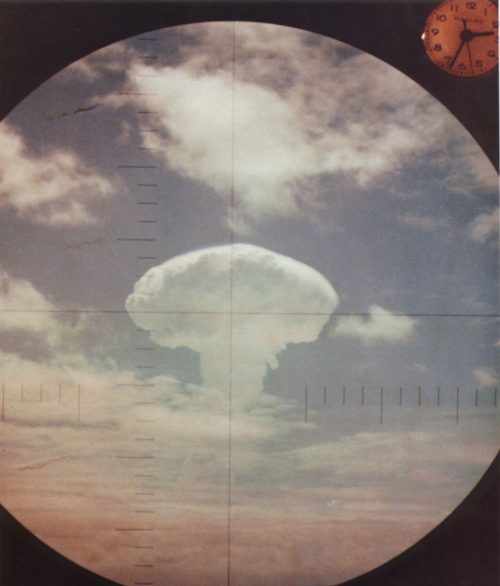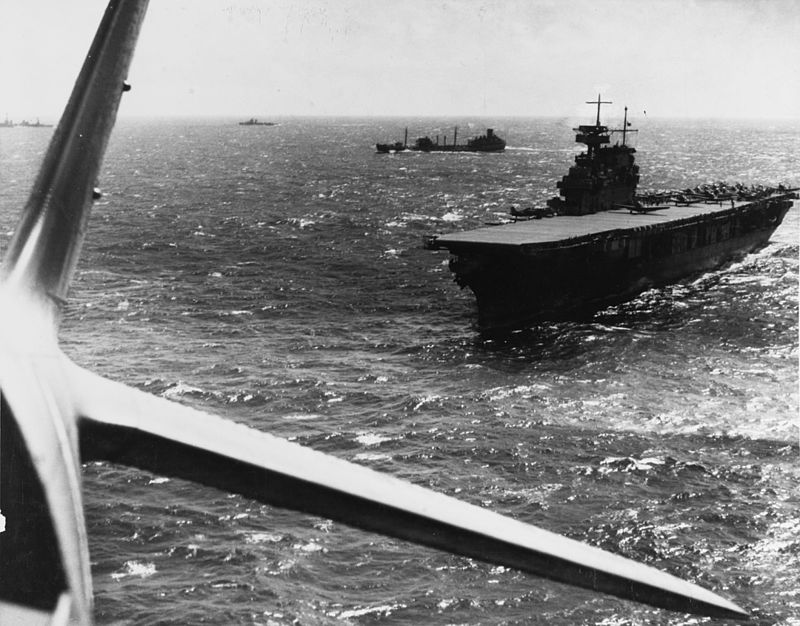May 7 in U.S. military history
[Featured image: A U.S. warplane taking off from USS Yorktown (CV-5) shortly before the Battle of the Coral Sea.]
1873: Marines from the USS Pensacola and USS Tuscarora land at the Bay of Columbia to protect American citizens and interests as local groups fight for control of the Panamanian government.
1915: Just off the coast of southern Ireland, the submarine U-20 spots the massive ocean liner RMS Lusitania, steaming from New York and hoping to sneak through Germany’s blockade of the British Isles . The U-boat fires a single torpedo at the ship and Lusitania sinks in just 18 minutes, taking 1,198 people – including 128 Americans – with her to the bottom.
While the British government maintained for years that Lusitania was purely a passenger liner, the secondary explosions which caused the vessel to sink so quickly may have been from the tons of ammunition secretly being transported from an allegedly neutral United States. The sinking of Lusitania will be a major factor in the United States declaring war on Germany two years later.
1942: The Battle of the Coral Sea begins in earnest between Allied (primarily U.S.) Naval forces and the Japanese Navy. The battle – the first fought between opposing ships beyond visual range – is largely a carrier-air fight, and will result in the loss or damage of several American ships, including USS Lexington, plus scores of destroyed planes and hundreds of sailors and Marines killed. The Japanese will also suffer serious losses.
According to the U.S. Naval Historical Center, the battle “was an operational and strategic defeat for [Japan], the first major check on the great offensive they had begun five months earlier at Pearl Harbor.”
1945: At 2:41 a.m. at Supreme Headquarters Allied Expeditionary Force in Rheims, France, German general Alfred Jodl signs the unconditional surrender of all German forces.
After nearly six years of brutal fighting, World War II has finally ended in Europe.
1954: Vietnamese general Vo Nguyen Giap decisively defeats the French military in the Battle of Dien Bien Phu. The Americans had been providing military support to the French in their attempt to hold the colony – in order to maintain a coalition against the Soviet Union in Western Europe.
The French withdraw from Vietnam after Dien Bien Phu, leaving the problem to the United States – setting the stage for the Vietnam War.

1962: The submarine USS Ethan Allen (SSBN-608) launches the only nuclear-tipped ballistic missile ever fired by the United States. The Polaris missile blasts out of the submerged sub and flies 1,000 nautical miles before detonating in the air near Johnson Island in the South Pacific. The FRIGATE BIRD test is one of over 30 nuclear tests conducted by the U.S. military in 1962.

Britain had blockaded Germany in 1914.